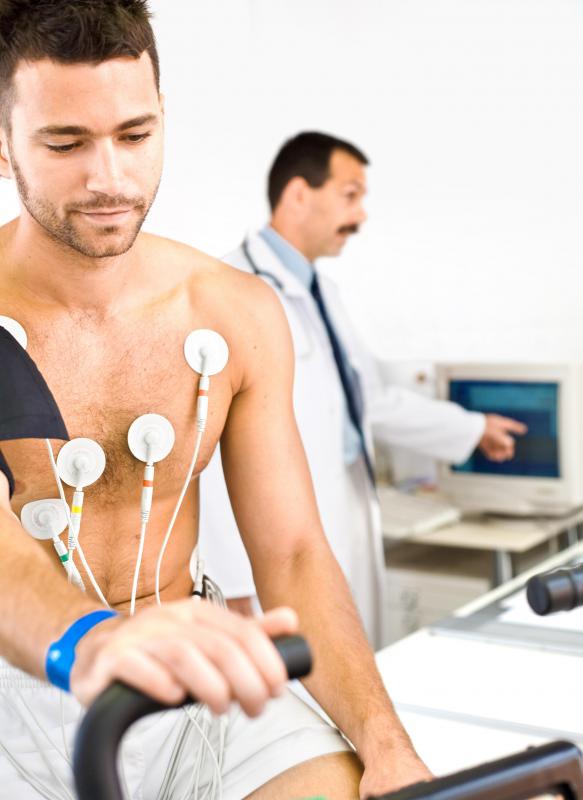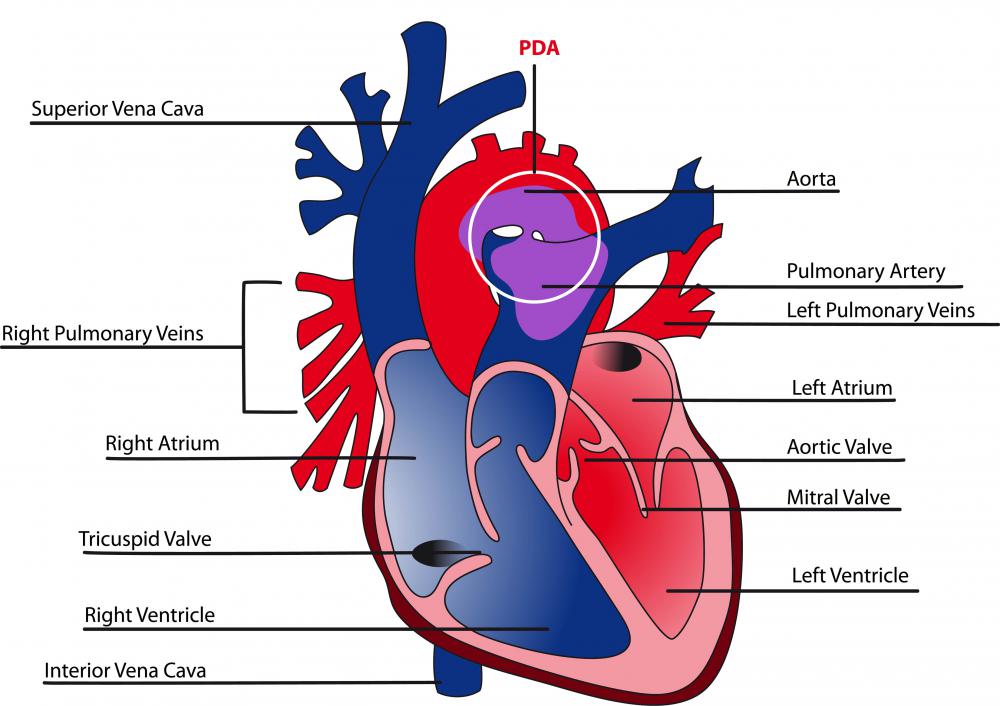At WiseGEEK, we're committed to delivering accurate, trustworthy information. Our expert-authored content is rigorously fact-checked and sourced from credible authorities. Discover how we uphold the highest standards in providing you with reliable knowledge.
What is a Heart Screening?
A heart screening is a diagnostic test used to detect and evaluate heart disease. Often, when a patient presents heart-related symptoms to a doctor, he or she may be sent for a screening to confirm an abnormality or to rule one out. Individuals with an existing disease will generally undergo frequent screenings to track disease progression and treatment effectiveness. In many cases, a heart screening is included as part of a preventive health care examination in an effort to catch a disease before the patient develops symptoms. There are many different types of screenings for the heart and the test a patient undergoes may depend on the symptoms he or she is displaying.
An electrocardiogram, or EKG, is a common heart screening. This noninvasive cardiovascular screening uses electrodes to record the electrical signals of the heart. The test can show how well the heart is beating. It can also indicate any heartbeat irregularities, such as an arrhythmia. Often, many doctors will have an EKG machine available in their office, which can eliminate the need to visit a hospital for the test.

If a person complains of easily giving out upon exertion, he or she may be sent for a stress test. A stress test is a type of heart screening which evaluates the heart's function under stress. In most cases, the person will be asked to take part in some type of physical activity. Often, this may mean running on a treadmill to get the heart rate up. Patients not able to do a physical exercise may be given a medication to stimulate the heart instead.

Often, when an individual undergoes a standard heart screening like an EKG and the results are inconclusive, a doctor may order additional tests. An echocardiogram may be one of the follow-up tests ordered. This type of health screening creates a moving image of the heart using sound waves picked up by a transducer. Echocardiograms can show a clear and detailed image of the heart. From this test, a doctor can examine the heart valves and arteries, look for blood clots and tell how well the heart is pumping blood.

The type of heart screening test a doctor orders may depend on the individual's symptoms or the type of information the doctor needs. When part of a preventive examination, an EKG may be the test of choice, because it is relatively quick and can provide a great deal of basic information about the heart. If a more in-depth analysis is needed, a patient may be sent for an echocardiogram or a cardiac computerized tomography (CT) scan. A CT scan may be used to create cross sectional views of the heart and the many structures within it. If a person has ongoing heart-related symptoms, he or she should consult with a doctor for a screening, as the test can be used to prevent some diseases and to diagnose others before significant heart damage occurs.
AS FEATURED ON:
AS FEATURED ON:














Discuss this Article
Post your comments